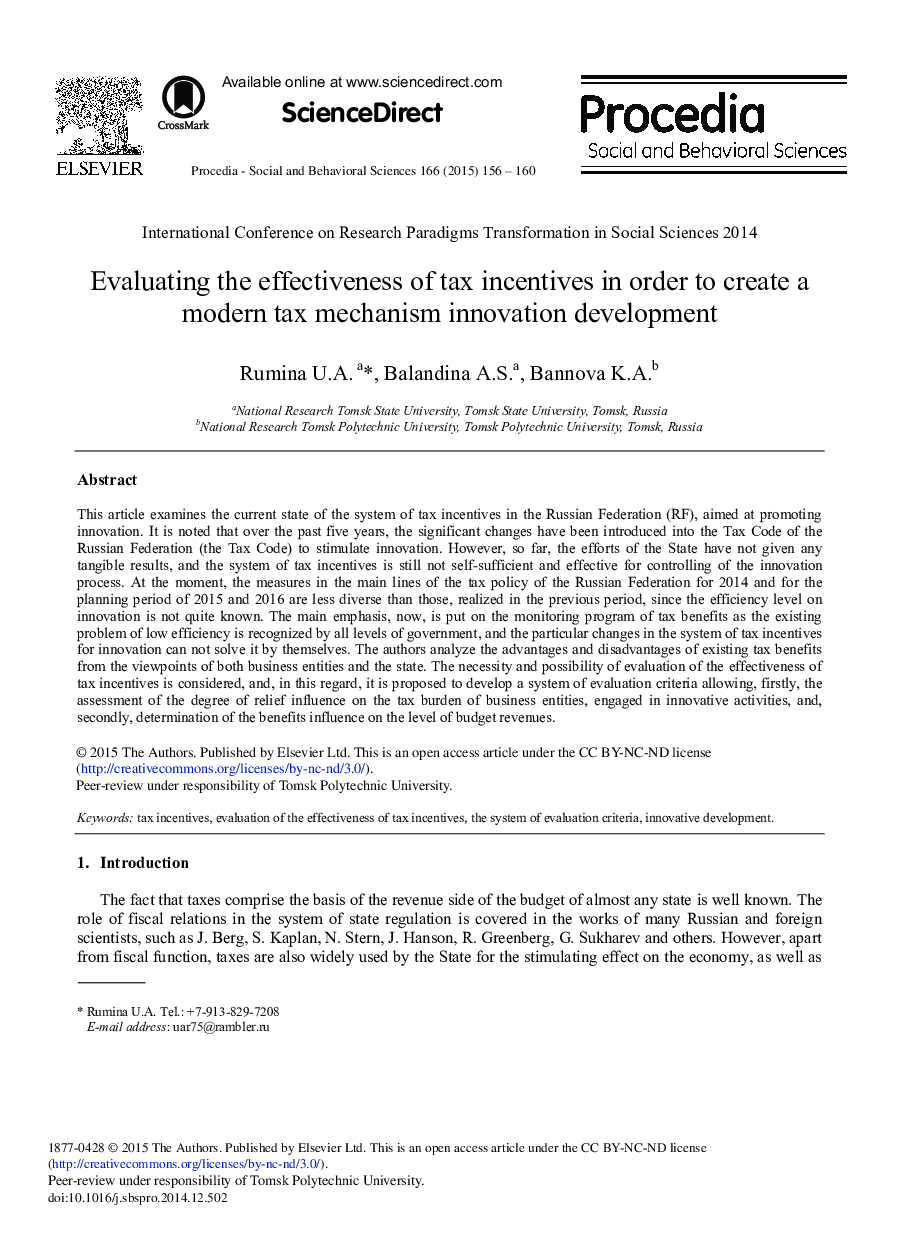| Article ID | Journal | Published Year | Pages | File Type |
|---|---|---|---|---|
| 1111901 | Procedia - Social and Behavioral Sciences | 2015 | 5 Pages |
This article examines the current state of the system of tax incentives in the Russian Federation (RF), aimed at promoting innovation. It is noted that over the past five years, the significant changes have been introduced into the Tax Code of the Russian Federation (the Tax Code) to stimulate innovation. However, so far, the efforts of the State have not given any tangible results, and the system of tax incentives is still not self-sufficient and effective for controlling of the innovation process. At the moment, the measures in the main lines of the tax policy of the Russian Federation for 2014 and for the planning period of 2015 and 2016 are less diverse than those, realized in the previous period, since the efficiency level on innovation is not quite known. The main emphasis, now, is put on the monitoring program of tax benefits as the existing problem of low efficiency is recognized by all levels of government, and the particular changes in the system of tax incentives for innovation can not solve it by themselves. The authors analyze the advantages and disadvantages of existing tax benefits from the viewpoints of both business entities and the state. The necessity and possibility of evaluation of the effectiveness of tax incentives is considered, and, in this regard, it is proposed to develop a system of evaluation criteria allowing, firstly, the assessment of the degree of relief influence on the tax burden of business entities, engaged in innovative activities, and, secondly, determination of the benefits influence on the level of budget revenues.
